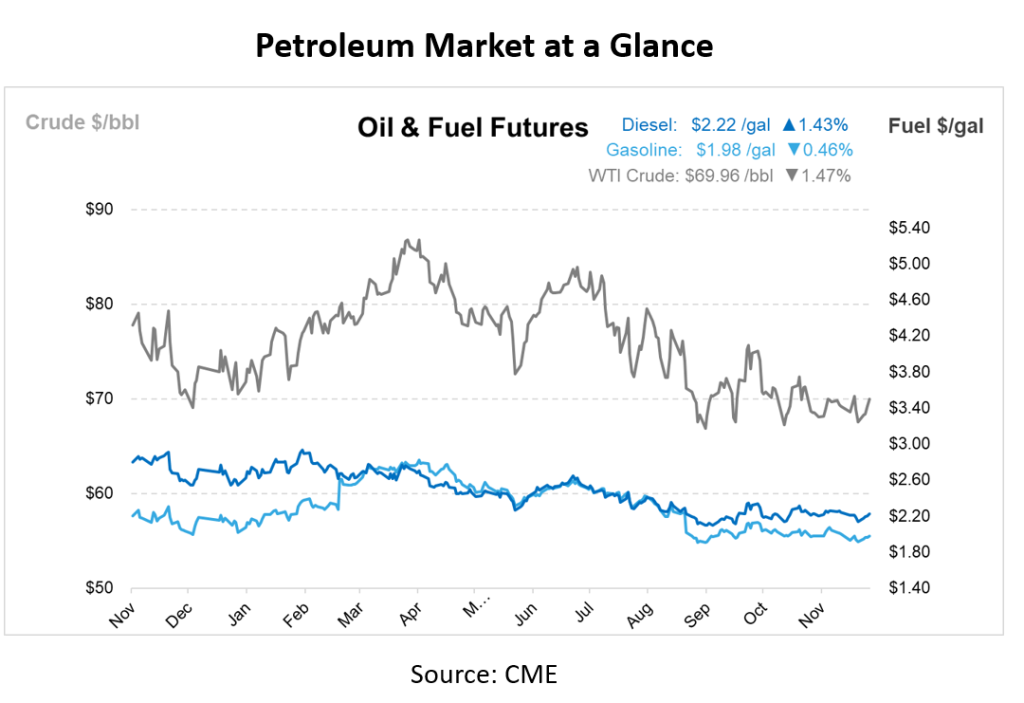
How to Choose the Right Hydraulic Fluid
When it comes to hydraulic systems, whether on mobile equipment or industrial machines, selecting the right hydraulic fluid is essential for efficiency, longevity, and overall system performance. But how do you make sure you’re choosing the right oil? What factors should you consider to ensure your hydraulic systems run smoothly and effectively?
Hydraulic fluid isn’t just a lubricant. It serves as a power transfer medium, heat conductor, and lubrication agent all in one. Whether you’re using it in construction machinery, agricultural equipment, or industrial systems, the type of fluid you choose can significantly affect the system’s performance.
How do you pick the right one?
First, let’s discuss viscosity grade, a crucial factor in choosing the right industrial lubricant. Simply put, viscosity refers to the fluid’s resistance to flow. Selecting a hydraulic fluid with the wrong viscosity can damage your components, reduce system efficiency, and accelerate wear and tear.
Start by considering the temperature conditions in which your system operates. The correct viscosity allows the fluid to flow well at low temperatures while still maintaining its performance under high heat. If you’re operating in a broad temperature range, you may want to consider a multigrade oil. Multigrade oils maintain their viscosity across different temperatures, which is especially beneficial for systems that experience freezing winters and scorching summers. You can learn more about viscosity ratings here.
How Do You Choose the Right Viscosity Grade for Your System?
Choosing the right viscosity isn’t just about looking at the numbers. It’s about understanding your system’s needs. Here’s how to approach it:
- Starting Viscosity at Minimum Ambient Temperature: What’s the coldest temperature your system will face?
- Maximum Expected Operating Temperature: What’s the hottest temperature your system will reach?
- Optimum Viscosity Range for Your System’s Components: Each component, whether it’s a vane pump, piston pump, or gear pump, has a specific viscosity range it operates best in.
If your equipment needs to operate efficiently across a wide range of temperatures— in regions with cold winters and hot summers—multigrade oils are a great option. These oils maintain a stable viscosity under fluctuating temperature conditions, which helps maintain the system’s efficiency and reduces fuel consumption in mobile equipment.
However, multigrade oils have some potential downsides. The additives that make them multigrade (called viscosity index improvers) can break down over time, especially in mobile systems with small reservoirs. This breakdown can lead to a loss of viscosity, which impacts the system’s performance. If you choose a multigrade, you may need to increase the oil’s minimum permissible viscosity by about 30% to account for this breakdown.
Should My Hydraulic Fluid Use Detergents?
Some hydraulic oils contain detergents and dispersants that help break down sludge, varnish, and water that could accumulate in the system. These oils can help prevent deposits from forming, but there’s a trade-off. The contaminants don’t settle out, meaning they must be actively filtered to avoid clogging the system. Plus, these oils can emulsify water, which is helpful in keeping water from separating, but it’s important to keep water content low to avoid corrosion or cavitation issues.
Should you go for detergent additives in your system? It depends. If you have a mobile system where contaminants can’t settle out easily, detergents might be a good choice. However, in systems where water could cause damage, keeping the water content below the saturation point is crucial.
OEM Recommendations
This might seem like a no-brainer, but have you checked the OEM (original equipment manufacturer) specifications for your hydraulic system? They often provide crucial recommendations that should be followed, especially to maintain warranty conditions. However, in cases where the operating conditions are extreme—like extreme heat or cold—slightly modifying your choice based on the OEM’s guidelines could improve performance and reliability.
Talk to the Specialist
Mansfield Service Partners offers hydraulic fluids to address diverse needs ranging from food-grade water separation performance to fire-resistant uses to aviation applications, in a variety of viscosity grades with a focus on seal capability, rust, temperature, and shear stability performance. Contact one of our experts today to learn more about our extensive line of services and industrial lubricants.


